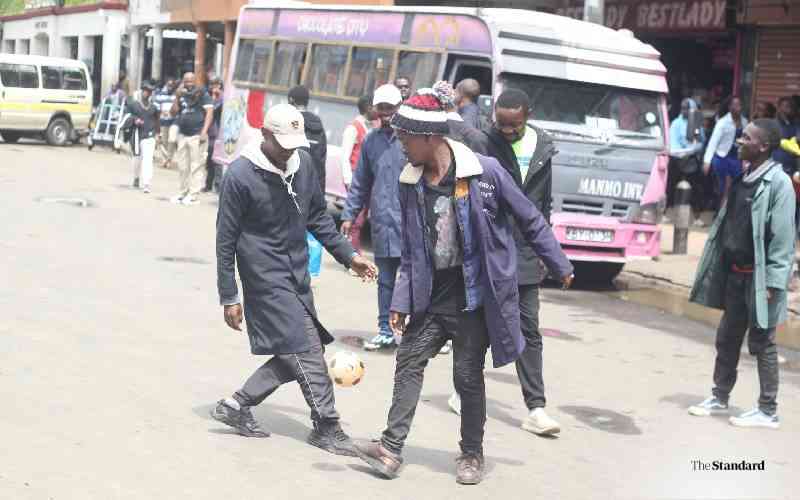Nairobi’s Central Business District came to an unusual standstill on Wednesday as public service vehicles (PSVs) were barred from accessing the city centre. The move, part of heightened security measures, forced thousands of commuters to walk long distances to reach their destinations.
Key entry points into the CBD, including Kenyatta Avenue, Haile Selassie Avenue, and Moi Avenue, were tightly guarded by anti-riot police officers. Their presence was most pronounced along routes leading to State House, where security was significantly reinforced.
The atmosphere was eerily quiet for a typical weekday. Most businesses remained shut, with only a few shops and food stalls operating. Streets that are usually bustling with activity saw reduced foot traffic as many Nairobians opted to stay home in anticipation of possible unrest.
The security clampdown came as Kenya marked the anniversary of the June 25 protests, which last year saw widespread demonstrations against government policies and rising living costs. The memory of those events — including clashes between protesters and police — appears to have prompted authorities to take precautionary steps to prevent a repeat.
While the city remained peaceful throughout the day, the restricted movement and business closures dealt a blow to daily wage earners and small traders who rely on walk-in customers.
Many Nairobi residents expressed frustration over the lack of public transport and the heavy police presence, calling for better communication and contingency planning in future. For now, the capital holds its breath, hoping for calm in the face of rising political and social tensions.

